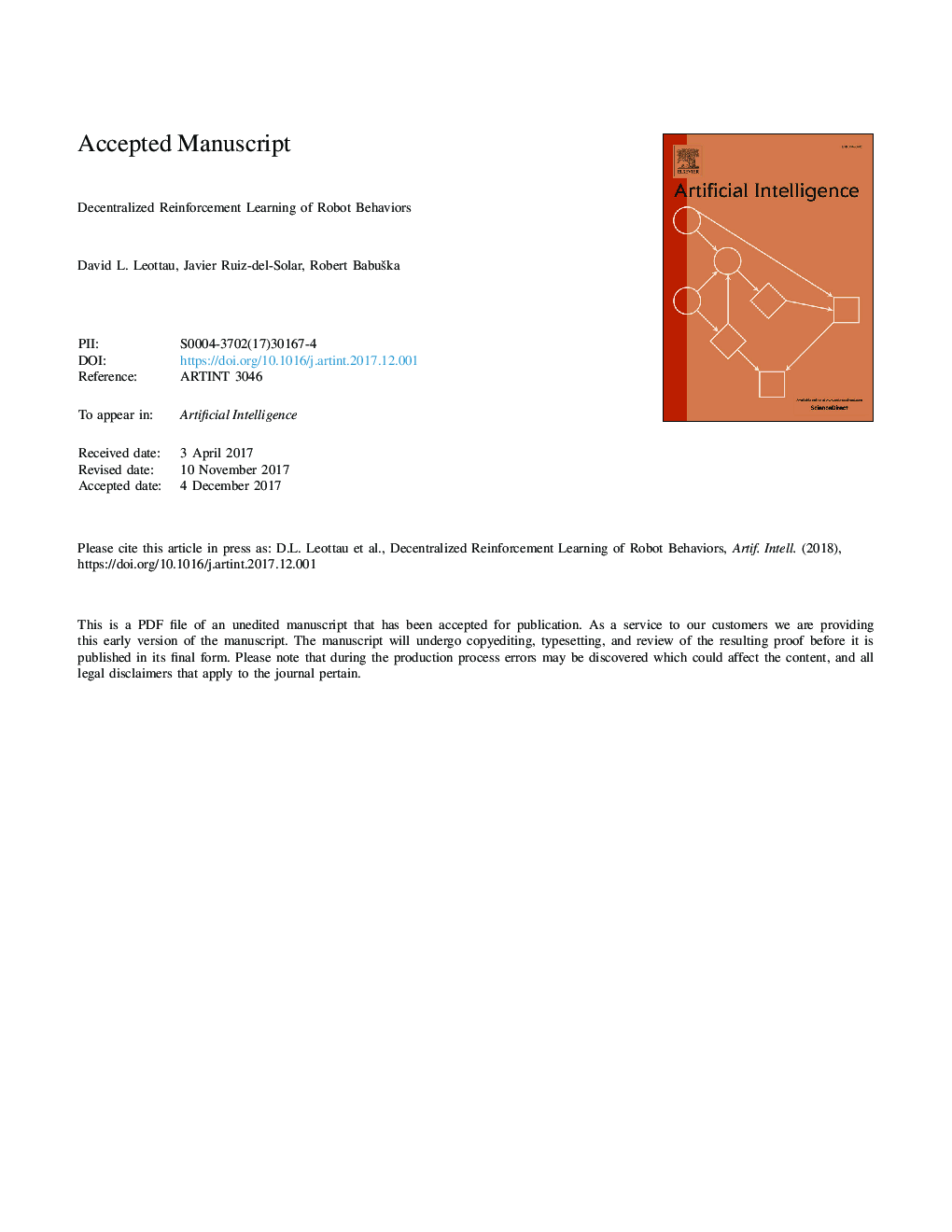| Article ID | Journal | Published Year | Pages | File Type |
|---|---|---|---|---|
| 6853062 | Artificial Intelligence | 2018 | 66 Pages |
Abstract
A multi-agent methodology is proposed for Decentralized Reinforcement Learning (DRL) of individual behaviors in problems where multi-dimensional action spaces are involved. When using this methodology, sub-tasks are learned in parallel by individual agents working toward a common goal. In addition to proposing this methodology, three specific multi agent DRL approaches are considered: DRL-Independent, DRL Cooperative-Adaptive (CA), and DRL-Lenient. These approaches are validated and analyzed with an extensive empirical study using four different problems: 3D Mountain Car, SCARA Real-Time Trajectory Generation, Ball-Dribbling in humanoid soccer robotics, and Ball-Pushing using differential drive robots. The experimental validation provides evidence that DRL implementations show better performances and faster learning times than their centralized counterparts, while using less computational resources. DRL-Lenient and DRL-CA algorithms achieve the best final performances for the four tested problems, outperforming their DRL-Independent counterparts. Furthermore, the benefits of the DRL-Lenient and DRL-CA are more noticeable when the problem complexity increases and the centralized scheme becomes intractable given the available computational resources and training time.
Keywords
Related Topics
Physical Sciences and Engineering
Computer Science
Artificial Intelligence
Authors
David L. Leottau, Javier Ruiz-del-Solar, Robert Babuška,
